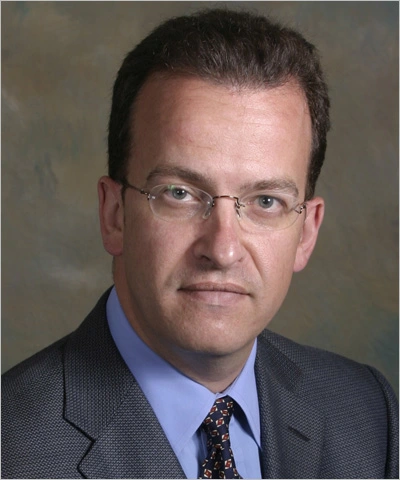Richard C. Jordan, DDS, PhD, FRCD(C) FRCPath
Dr. Richard Jordan is Professor of Oral Pathology in the Department of Orofacial Sciences School of Dentistry, Professor of Pathology and Professor of Radiation Oncology in the School of Medicine. He graduated with a DDS degree in 1986 that was followed by specialty training in Oral Pathology and Oral Medicine and a Master of Science degree in Oral Pathology. All of this was completed at the University of Toronto. He then went on to earn a PhD from the Faculty of Medicine at the University of London (UK) examining early molecular biomarkers of lymphoma development. He was a faculty member at the University of Toronto from 1995 through to 2000 before relocating to UCSF.
Dr. Jordan is currently the Chair of the Division of Oral Medicine, Pathology and Radiology at UCSF. He is the Director of the Oral Pathology section of the UCSF Dermatopathology & Oral Pathology Service, one of the nation’s largest diagnostic pathology services in the US. Dr. Jordan’s research focus has been oral precancer and cancer where his group has been studying biomarkers of oral cancer development and prognosis. He has authored over 100 research publications, reviews and book chapters. One of his books is the most widely used oral pathology textbook in the world. He has had 20 years of continuous extra-mural funding from several major research funding organizations including the Medical Research Council, National Cancer Institute of Canada and from the National Institutes of Health.
Dr. Jordan is a pathologist with expertise in the diagnosis of head and neck (HN)/oral tumors. He is the Director of the NRG Oncology Biospecimen Banks with biobanking locations in San Francisco, Houston, Pittsburgh and the Nationwide Children’s Hospital in Columbus. It is the largest of the 5 NCI funded co-operative cancer groups enrolling patients into late stage phase 2/phase 3 cancer clinical trials. Dr. Jordan has led and contributed to a wide range of scientific investigation from biologically based, mechanistic studies examining the development of oral cancer, lymphoma and salivary gland diseases to epidemiological studies of these and other cancers. He and collaborators established the now widely cited methods to quantify DNA and RNA aberrations in material sourced from paraffin embedded tissues. His specific research interest includes the studying the role of HPV 16 in HN cancer and the development of more reproducible method to report p16 results for HPV positive HN cancer.
Updated: Sep 2018
Email:


